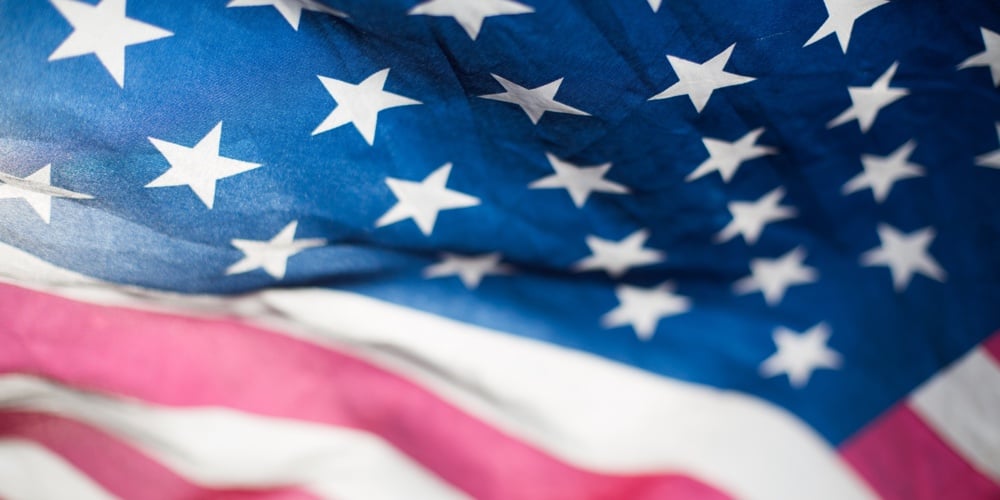Juneteenth: America’s real Independence Day

Writing an article about Juneteenth creates some internal conflict. On one hand, I am extremely excited to illustrate the importance of such an impactful moment in American history and to inform and enlighten people about what it means. On the other hand, there is a heaviness. To discuss Juneteenth means also discussing (at least, in part) America’s greatest sin: Slavery.
Although the popularity of Juneteenth celebrations and information about the holiday are spreading exponentially, it makes sense to start with some background. What is Juneteenth all about, anyway, and what does that have to do with Independence Day?
On July 4, 1776, the United States of America was born. This date marks the formal adoption of the Declaration of Independence and our country’s sovereignty from Great Britain. It goes without saying that this day was a pretty big deal! Being our own country meant setting our own course for the future. It meant that every American was now “free” to operate under the protections of this country, rather than the rule of another. The only problem? Not every American was recognized as … well … American. For black people in this country, the next 100 years wouldn’t provide much relief, as slavery was still alive and well. Over that 100 years, America engaged in an ugly Civil War, which was fought for many reasons, but we can’t act like slavery (or the South’s determination to keep that institution going) wasn’t the main area of contention. Many people mistakenly believe that President Lincoln’s signing of the Emancipation Proclamation in 1863 ended slavey. It helped – no doubt – but without a cable news network to spread word of such a momentous piece of legislature, the good news did not travel fast. The result was a slow matriculation of information across the country. Over two years later, Juneteenth (short for June 19th) marked the date in 1865 when (observing the Emancipation Proclamation) Major General Gordon Granger announced that “…in accordance with a proclamation from the Executive of the United States, all slaves are free.”
At its core, Juneteenth is a holiday of hope and celebration. It is not some made-up “Hallmark holiday.” It is not dedicated to raise awareness of the marginalization or appreciation for the contributions of one demographic group. It is recognizing a real date of historic importance: A date that should be of significance to every American.
Juneteenth hasn’t reached the level of the national mainstream, and that may be for some of the same reasons I was torn in writing about it. Celebrating it means acknowledging some ugly truths about this country we call home. This has kept many Juneteenth celebrations mostly as a niche cultural phenomenon, rather than prominently recognized celebrations. Over the past few years, the popularity of the date has exploded. Today, 48 states and the District of Columbia recognize Juneteenth as an official holiday (some even as a paid holiday, similar to that of July 4th or Thanksgiving).
Last year, after the murder of George Floyd and just a few weeks before Juneteenth, many organizations made an effort to observe the holiday. This year, a debate occurred: Was that observation a one-off event? Would a cultural floating holiday be a long-term alternative? Should Juneteenth be permanently observed, perhaps replacing Columbus Day on an organization’s paid holiday calendar? At Humanidei, we believe it is a day that merits dedicated observation. As a firm committed to building a more inclusive credit union system, there are certain words we question: Standard, normal, typical, traditional, mainstream. Often, these words encode values or beliefs relevant to the group that has historically held a majority position in society and cause us to overlook unique traits that would enrich the credit union system. Holidays or traditions relevant to this group become “mainstream,” and everything else becomes “culturally significant.”
As an Independence Day, Juneteenth is much more than a niche cultural phenomenon. It is relevant to all of America. Observing it should not eliminate the celebration of the Fourth of July: That date matters. I celebrate the Fourth of July every year with my family (with the last time being in 2019 down in beautiful Savannah, Georgia). I don’t want the nation to stop hosting backyard barbecues or picnics. Few people love burning meat on a grill more than I do! And despite the title of the article, my goal is not to have Juneteenth recognized as the “New and Improved Official Independence Day” for America, but to see the lesson here…one of inclusion. July 4th marks the date of our country’s independence, but the ugly truth is that it fails to mark the date of independence for all the inhabitants of this country. Juneteenth is also a celebration of independence, one that is inclusive of more than just white American citizens, and one that every American should be proud to celebrate.
In the communities where the Humanidei team lives, we have opportunities to attend music festivals, fun runs, and wine tastings (Portland, OR); unity celebrations and art shows (Hartford, CT); entrepreneur festivals, community cookouts, and poetry festivals (Charlotte, NC); film festivals, beach bonfires, and author readings (San Francisco, CA). A quick Google search for “Juneteenth celebrations near me” may offer up some neat events in your local area. I encourage each of you to check out one (or more) of those events. You will probably meet some awesome people, and you will be a part of a meaningful celebration of a very important date – not just in black history, but in American history.
We’re all working to make this country be the best it can be, and to see to it the realization of the vision of our forefathers. If we all just take a step or two in the direction of inclusion, think about how much better we can make things for ourselves, for our children, for our communities, and for our country.
Celebrate Juneteenth!

